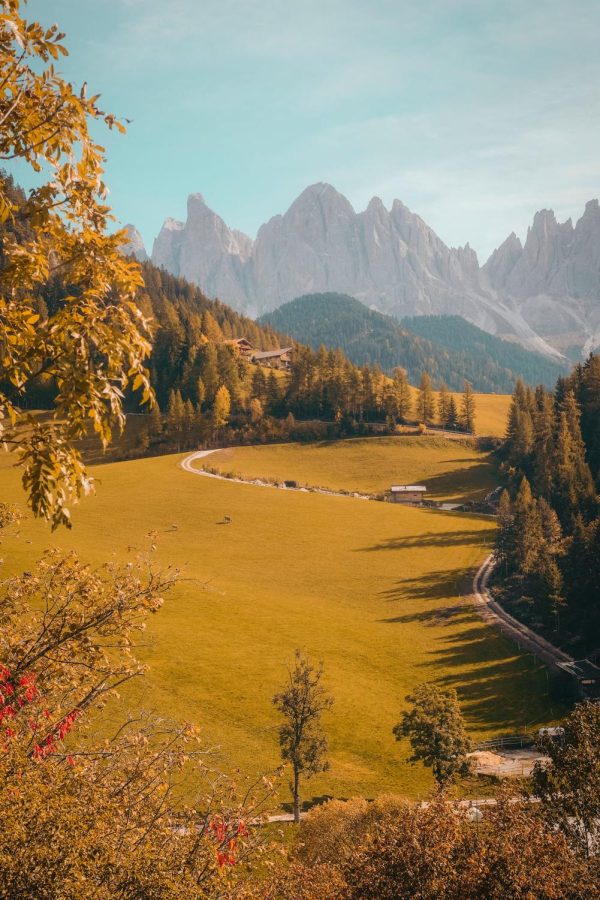Sustainable Living As Students: How You Can Help Your Planet
June 23, 2022
April 22, also known as, Earth Day came and went without most people realizing it. However, there are some steps you can take to take care of the earth on Earth Day and beyond. Before you roll your eyes at the thought of hearing “recycle paper, drive less, become vegan” for the millionth time, what if you can help the environment without adding any additional steps to your life? Through adjusting our interactions with food—including buying, cutting, and eating—we can create small changes in our already established routines to live healthier, for ourselves, and our planet.
Buy seasonal produce.
I have never seen a watermelon in a grocery store in October, let alone December. All produce has a specific optimal temperature or season for them to grow in, like during the fall for carrots, and during the spring for pineapple. Yet, there’s produce like corn and blueberries that are in grocery markets all year round, but we must eat corn on the cob and blueberry cobbler in the summer for a reason. When we buy foods that are out of season, they have to travel more miles to be in your shopping cart, releasing more greenhouse gasses like carbon dioxide. Take blueberries for an example: in the summer, they’re shipped from New Jersey, in the winter, they’re shipped from the Southern Hemisphere. If you can buy foods that are in season, you’re decreasing your carbon footprint, and also enjoying more delicious produce.
The USDA Seasonal Produce Guide
The New York Seasonal Food Guide
Waste less, plan more.
Food waste is no better than plastic bags. When they get stuck at landfills, they produce methane gas, which is 25 times as potent as carbon dioxide at trapping heat in the atmosphere. So when we hear fancy words like being sustainable (the practice of interacting with the planet responsibly), it doesn’t solely include activities like walking everywhere. As students, we can be sustainable by being more intentional about the food we buy and eat.
The secret to reducing your food waste is changing how you go grocery shopping. While our parents may fill the refrigerator now, you can keep this in mind for the future. Additionally, the next time your parents are heading to the grocery store, remind them to not go on an empty stomach, and to take two minutes to write a list of items they need. These changes will help decrease the chances that they make any impulsive purchases that will only go to waste, like that protein bar, or bread flour, because you’re totally going to get around to making sourdough this weekend.
Most importantly, as a society, we have to practice being purposeful about the food we put on our plates. Don’t get me wrong, we’ve all had moments where our eyes were bigger than our stomach, but maybe you should try practicing mindful breathing the next you see a table filled with food. Take a second to inhale through your nose, and exhale out your mouth, reminding yourself that you can always go for seconds.
A plant-forward mindset.
In 2020, the average American consumed 264 pounds of meat despite the fact that we were all in lockdown—which provided ample opportunity to try legumes, tofu, nuts, and seeds that can last months in your pantry or refrigerator, compared to the mere few days of meat. Even though I won’t ask you to go vegan, I will recommend that you decrease your beef consumption. According to carbonbrief.org, beef production emits more than twice the CO2 equivalent emissions than the second most polluting food, lamb. By swapping out just one steak for a can of chickpeas or tofu, you can be more plant-forward. These vegan sources of protein may never replace meat, but with the mindset of incorporating more plant-based foods, it will help to crowd out the meat that once took center stage on your plate.
We have far too often overlooked how much Earth has given us. We are able to enjoy clothes made out of cotton, cars that run on gas, and books filled with paper because our Earth provided us with water, oil, trees, and everything else we need. The saying that “health is wealth” also applies to our Earth; one day, we will not be able to enjoy Earth’s wealth if we don’t start working to protect its health now. Let’s eat for our health, while protecting our planet’s wealth.






